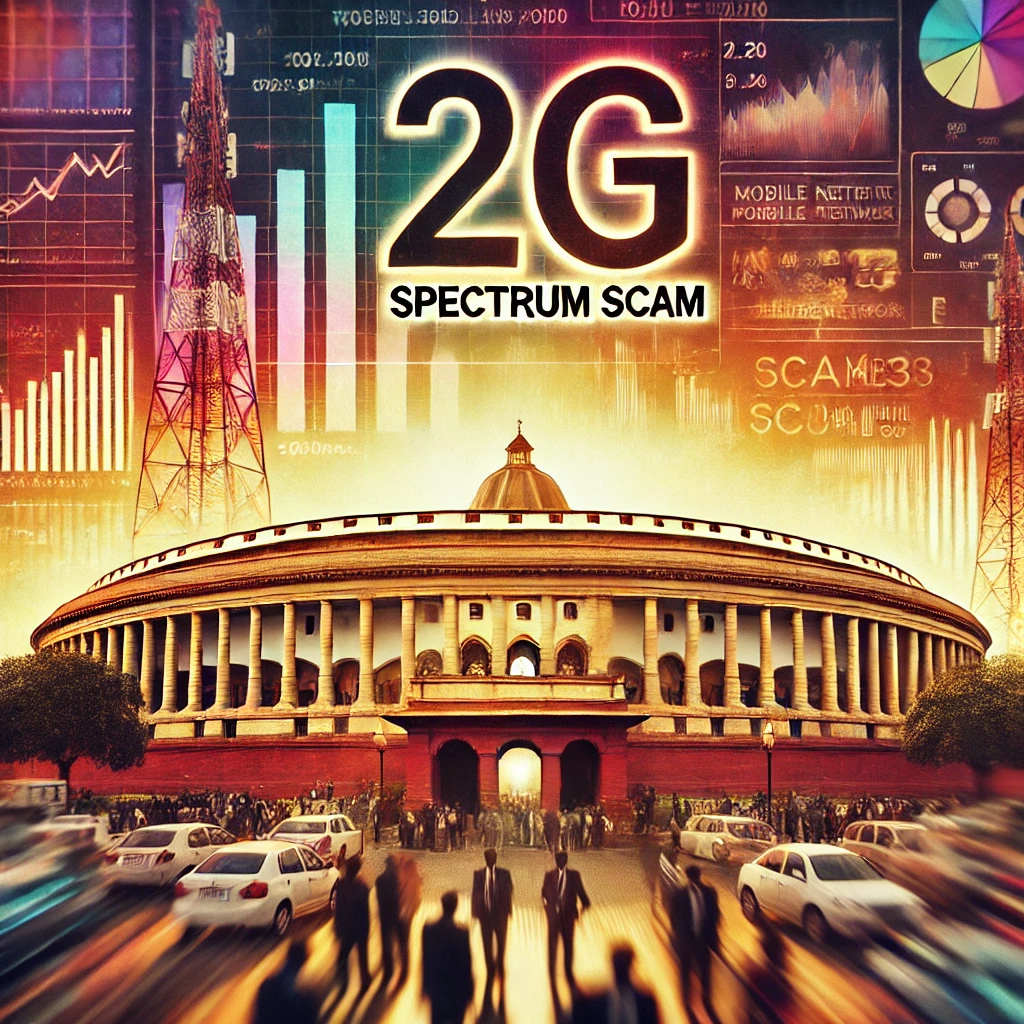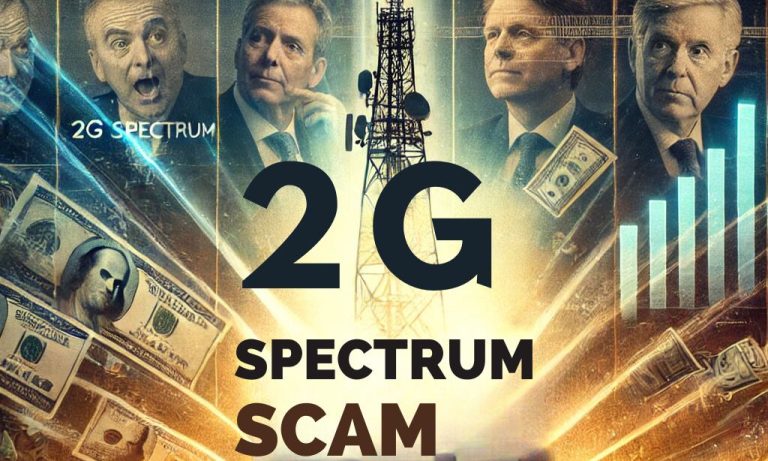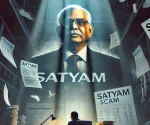The spectrum is a vital natural resource, like water, minerals, and land. India has two major ways the government can sell the spectrum: auction or fixed price. In an auction, the government benefits more since it sells the spectrum to the highest bidder. However, when selling the spectrum for a fixed price, the government favors some companies.
One such example is the tenure of A. Raja was the Communications and IT Minister in the Congress-led government from 2007 to 2009. Raja issued 122 licenses for the 2G spectrum in 2008 by adopting the fixed-price method. This decision incurred a massive loss to the Indian government, which was around ₹1.76 lakh crore. Let’s look into this controversial case in detail.
| Aspect | Details |
|---|---|
| Minister Involved | A. Raja, Communications and IT Minister (2007-2009) |
| Licenses Issued | 122 2G spectrum licenses issued in 2008 |
| Method of Allocation | Fixed price, instead of an auction |
| Loss to Government | ₹1.76 lakh crore due to underpricing of licenses |
| Accused Individuals | A. Raja, Siddharth Behura, R.K. Chandolia, Shahid Usman Balwa, Kanimozhi, and others |
| Court Verdict | All accused were acquitted in 2017, but the Supreme Court had earlier ruled the licenses illegal |
| Consequences | Political fallout, loss of public trust, and damage to the telecom sector |
Background of 2G Spectrum Scam
In 2008, A. Raja granted 122 2G spectrum licenses by opting for the fixed price. These were offered against no proper rules or guidelines, and the same sold at throwaway prices caused heavy losses to the state exchequer.
The process was highly controversial for several reasons:
- Shortened Application Date: The government reduced the application deadline for the 2G spectrum from October 1, 2007, to September 5, 2007. As a result, many companies were unable to apply.
- Last-Minute Submission: On the date of issuing the licenses (January 10, 2008), companies had only a few hours to submit their documents and cheques. Only those companies that were favored by Raja were ready with the required documents.
- No Consultation: Raja did not consult important bodies such as the Law Ministry, Finance Ministry, or Telecom Regulatory Authority of India (TRAI), despite their suggestions to auction the spectrum.
Allegations and Charges Against A. Raja
People viewed Raja’s actions as highly unethical and illegal. The government’s Comptroller and Auditor General (CAG) released a report in 2010, which revealed that Raja’s decisions caused the Indian government to lose ₹1.76 lakh crore. The allegations against Raja included:
- Sale of Telecom Licenses at Unfair Prices: The entry fee for the 2G spectrum licenses in 2008 was fixed at 2001 prices, despite the massive growth in the mobile subscriber base.
- No Auction Process: Instead of conducting a fair auction, Raja sold the licenses at a fixed price, ignoring the advice of TRAI, the Law Ministry, and the Finance Ministry.
- Violation of Rules: Raja reduced the application deadline, changed the rules, and ignored the first-come, first-served policy, all of which favored certain companies.

The Role of the CAG
The CAG’s report played a key role in bringing the 2G spectrum scam to light. The report, submitted in November 2010, claimed that Raja’s actions led to the loss of ₹1.76 lakh crore to the Indian government. It also pointed out that Raja had ignored the advice of key government bodies:
- Telecom Commission Not Consulted: The Telecom Commission, in which members from the Finance Ministry and Planning Commission were also included, was not taken into confidence about TRAI’s recommendation on spectrum allocation.
- Suggestion of Prime Minister of India Ignored: In 2007, the Prime Minister of India stated that the government should auction the spectrum to achieve its price. He ignored this suggestion and continued with his plan to sell the spectrum at outdated prices.
- Issuance of Licenses to Ineligible Companies: The report by the CAG also reported that most of the companies licensed were not eligible. They had provided false or incomplete information to obtain the licenses.
Read about QNet Scam here.
Charges Against A. Raja and Others
The CBI filed a case against A. Raja along with his associates and also a few companies that came under the scam. In addition, the charges leveled included criminal conspiracy, cheating, and violation of the Prevention of Corruption Act. Below is the list of concerned persons and companies:
- A. Raja: Former Telecom Minister
- Siddharth Behura: Former Telecom Secretary
- R.K. Chandolia: Raja’s Private Secretary
- Shahid Usman Balwa: Former MD of Swan Telecom
- Sanjay Chandra: MD of Unitech Wireless
- Vinod Goenka: Director of DB Realty
- Corporate Entities: Reliance Telecom, Swan Telecom, Unitech Wireless
Accusers accused these individuals of conspiring with Raja to grant licenses to favored companies at low prices, causing a massive loss to the government.
Did you know about Scam 2003?
Court’s Verdict
The 2G spectrum case lasted for several years. In 2017, a special CBI court acquitted all the accused including A. Raja and Kanimozhi who is the daughter of DMK leader M. Karunanidhi. The court said that the prosecution failed to prove before the court that the charges framed against the accused were true. The verdict of the court was as follows:
- No Evidence: The court found that the prosecution had failed to prove that the accused were guilty of criminal conspiracy or corruption.
- Lack of Proof: The court noted that the evidence presented in the charge sheet was not enough to convict the accused, as many of the witnesses had not supported the claims in court.
However, the court’s decision did not overturn the Supreme Court’s judgment that declared the 2G spectrum licenses issued under Raja’s tenure as illegal.
Impact of the Scam
The 2G scam had several far-reaching consequences:
- Loss to the Government: The scam led to a loss of ₹1.76 lakh crore to the Indian exchequer.
- Public Trust: The scandal damaged the public’s trust in the government and its institutions. It raised questions about the transparency and fairness of the telecom sector.
- Political Fallout: The 2G scam also had significant political consequences. It led to the downfall of several prominent political figures, including A. Raja and Kanimozhi.
The Legal Battle
The 2G scam legal cases also took ages to materialize. CBI performed a case investigation and filed charges against the involved persons in 2011. Year after year of the trial is witnessed along with some procedural changes in the case, ending with getting acquitted of all persons in question in the final judgment, which came out to be effective in 2017.
The verdict, however, cannot obscure the fact that the 2G spectrum case remains one of the most egregious examples of corruption in the history of India. It underscored the deficiencies in the allocation process of such precious resources as spectrum and cast doubts over the role of politicians and government officials in such scams.
2G Spectrum Scam FAQs
What was the 2G spectrum scam?
The 2G spectrum scam was a corruption case involving the allocation of 122 2G spectrum licenses by A. Raja at unfairly low prices in 2008, causing a loss of ₹1.76 lakh crore to the Indian government.
How did A. Raja allocate the 2G spectrum licenses?
A. Raja allocated the licenses using a fixed-price method, without conducting an auction. He reduced the application deadline and favored certain companies, ignoring rules and regulatory advice.
What was the role of the Comptroller and Auditor General (CAG) in the case?
The CAG’s report revealed that the allocation process led to a loss of ₹1.76 lakh crore to the government, highlighting the irregularities and lack of transparency in the spectrum allocation.
Who were the key people involved in the 2G scam?
A. Raja, his associates R.K. Chandolia and Siddharth Behura, and corporate figures like Shahid Usman Balwa (Swan Telecom) and Sanjay Chandra (Unitech Wireless) were charged in the scam.
What was the outcome of the 2G spectrum case in court?
In 2017, a special CBI court acquitted all the accused due to insufficient evidence. However, the Supreme Court had previously declared the licenses issued under Raja’s tenure as illegal.


